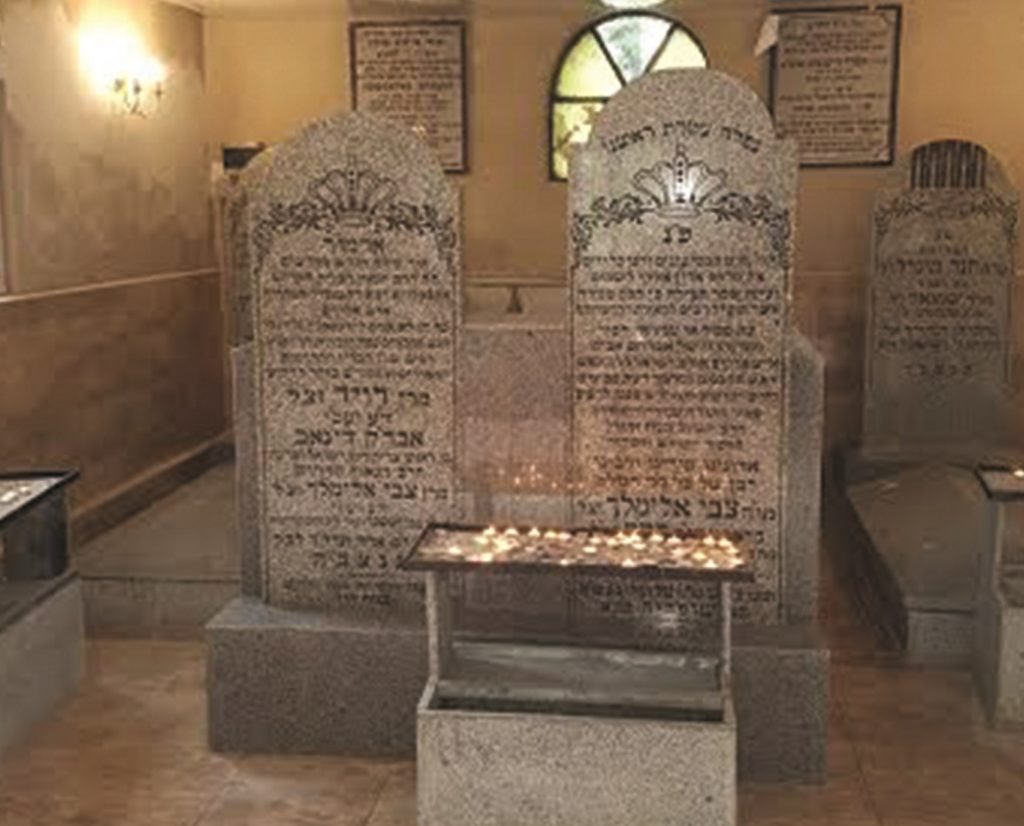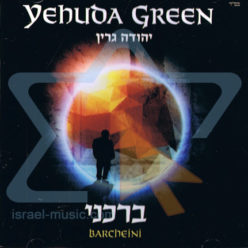Song: Rebbe Rebbe Rebbe
Album: “Barcheni” — Yehuda Green
Composer: Reb Pinchas Pomp
Year: 2014
Any bochur learning in Yerushalayim knows he’s welcome. They call on Thursday or sometimes even Friday to book themselves in for a seudah bringing along a friend or two. Reb Pinche Pomp is delighted to have a full table but his precondition is well known too. “Don’t come if you don’t want to sing ” he tells the callers.
“I don’t need a lot but I need that Shabbos singing in order to get through the next week” he says. It’s not just the sweet sound of a couple dozen harmonizing voices that does it for Pomp; it’s the spiritual uplift which a group kumzitz affords — the neshamah yeseirah expressed in song.
Reb Pinche’s own famous song “Rebbe Rebbe Rebbe mir villen zich mekasher zein tzu dir” has been adopted by many chassidic groups and its composer is just fine with that. Some people think it was originally composed as an ode to Rebbe Nachman of Breslov but the song actually came in to being at the tziyun of the sainted Bnei Yissaschar in Dinov where Reb Pinche — head of Mosdos Dinov in Poland -- has built accommodations for traveling chassidim. The song was fine-tuned with the help of mashpia Rav Motta Frank.
“Around four years ago I was in Dinov by the tzaddik’s kever. I feel a great connection to the Bnei Yissaschar. I’m a Toldos Aharon chassid so I’m a talmid of Rav Aharon Roth [the founding Rebbe of the chassidus from two generations ago]. Rav Ahreleh in turn was a talmid of the Dinover dynasty. The nusach that we daven is the nusach of the Bnei Yissaschar. I wanted a song to connect to the tzaddik.”
The words of the song — “Hineni mikasher nafshi…” [I bind myself in spirit emotion and soul to the soul of my great Rebbe] — are taken from Rav Aharon Roth’s “Tefillas Kabbalas Ol Malchus Shamayim.” In this prayer he asks for his tefillos and his intentions to be united with those of his mentors and all the tzaddikim of previous generations. When the inspiration of these words together with the soulful tune and Yiddish translation came into Reb Pinche’s mind as he stood davening at the kever in Dinov he felt he was able to pour out his heart and connect to the elevated soul of his own rebbe’s rebbe.
Pomp returned to Eretz Yisrael and recorded his composition very simply on a private disc. “It had no professional arrangements and people laughed at me” he says. Yet the next time his group of friends from the Nekudah Tova kollel traveled to Dinov for a Shabbos of hisorerus the new song “Rebbe Rebbe Rebbe” swept participants up and became a highlight. On Motzaei Shabbos the group went to Uman. “We sang it for three hours by Rabbi Nachman ” Pomp retells “and someone recorded it. Yehuda Green saw the clip and called me to ask for the song. I said ‘sure take it. ’”
Reb Pinche has since composed some other songs but he does not seem interested in selling them for a profit. “If I have something and someone wants to make something nice out of it let him enjoy it.” Although “Rebbe Rebbe Rebbe” is sung by crowds today Pomp still feels it comes into its own when sung in solitude. “When I am alone at the kever I can really pour out my heart to the tzaddik and connect ” he says.
“Rav Ahreleh Roth didn’t write which tzaddikim his prayer refers to” Pomp continues. “So everyone can take the song to their own rebbe. I know the Breslovers sing it to connect to Rebbe Nachman and the petitioners in Lizhensk sing it about Reb Elimelech. Israeli Sefardim have created a version with Hebrew words sung by Chaim Yisrael. To connect oneself to the neshamah of any tzaddik is something very elevated.”
Feedback
“A group of tourists came to Dinov and we sang a lot together” Pomp recalls. “When we began to sing ‘Rebbe Rebbe Rebbe’ one American woman told me that she first heard this song during her Pesach cleaning and what was once an agonizing chore became a spiritual experience. That’s how it is with connection. Many people have thanked me for the song because it helps them connect to their deepest reserves of emunah during hard times and in the merit of that emunah they have seen salvation.”



